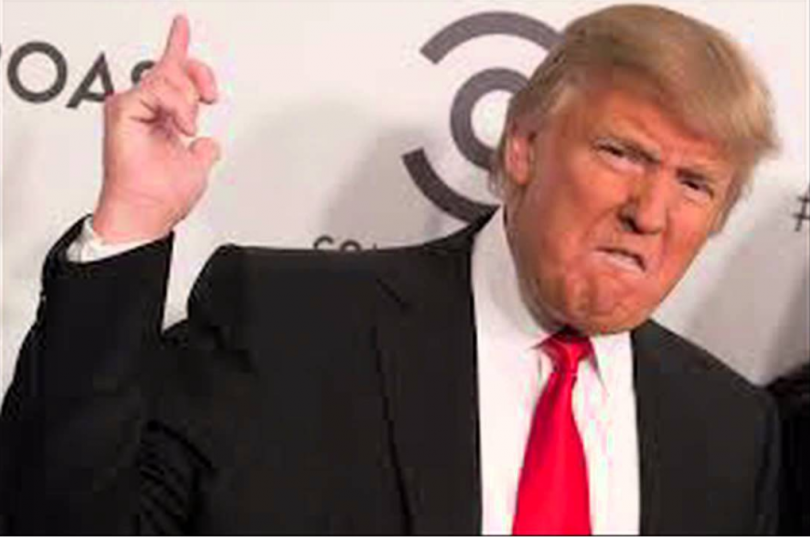aNewDomain –As Sen. Jeff Sessions’ Jan. 10 Attorney General confirmation hearing fast approaches, the natives are getting nervous.
–As Sen. Jeff Sessions’ Jan. 10 Attorney General confirmation hearing fast approaches, the natives are getting nervous.
By natives, I mean the business leaders, investors and influencers who power the high-flying legal American cannabis sector.
“If it were anyone else but Sessions coming in to be attorney general, I wouldn’t be so worried,” Peter O’Neil, the Seattle-based CEO of Empire Cannabis Brands told me today.
“When Trump won, I spent a lot of time assuring people that Trump probably would leave us alone, that he and (Clinton) had both said during the campaign they wouldn’t mess with state rights or this growing new (industry)” he said.
“But Sessions as AG?” O’Neil said. “That changes everything.”
O’Neil was one of 17 cannabis execs and financiers I talked to over the last few days to gauge feeling around Trump’s incoming AG, a 69-year-old four-term senator, who most insiders describe as one of most hard line lawmakers going.
Sessions, a vitriolic and outspoken opponent of legal cannabis, is expected to fly through the Senate Judicial Committee confirmation hearing next month.
Once he is confirmed, he’ll be free to take up arms against the legal cannabis business, beginning with the recreational cannabis sector now operating legally in eight US states. (Four of them — California, Nevada, Maine, and Massachusetts — joined up on Election Day.)
As AG, he could even extend a federal crackdown to the medical cannabis as legalized in 29 states if he wished.
So does Sessions spell the end of the flourishing legal cannabis sector?
We are talking about the fastest growing segment in American business history here. At $5.7 billion in sales, the legal pot biz will turn in receipts at nearly $8 billion this year, according to numbers from The Arcview Group.
“You will not find another market growing at these intervals that doesn’t already have multi-national billion dollar companies and institutional investors deeply entrenched, which is a huge opportunity for small and medium sized entrepreneurs and investors,” said Arcview CEO and founder Troy Dayton, who is “cautiously optimistic” Sessions will leave the flourishing market alone.
“Best case scenario? The administration continues to support states’ rights and leaves operating states and businesses alone,” said Jeffrey Zucker, who is president of Green Lion Partners. “Worst case scenario: the administration decides to crack down with raids on dispensaries and cultivations while simultaneously sending progress back 20 years.”
On its present course, legal pot shou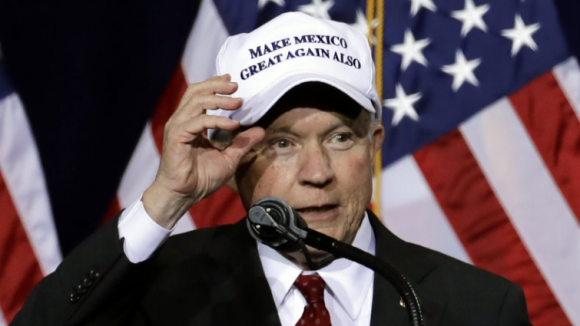 ld easily hit $20 billion by 2020.
ld easily hit $20 billion by 2020.
Sessions, if he wants, could pretty much just zero it out. As AG, he’ll have the power to do it, too.
We’re awaiting comment from Sessions’ office and Trump’s transition on the issue.
A poison pill
Some have commented in the trade journals that there is no much momentum in cannabis to stop it now.
In reality, though, killing off legal weed wouldn’t be difficult at all. Sessions would just have to do is rip up the so-called Cole Memorandum, a non legally-bonding policy doc that is the only obstacle standing between legal state cannabis use and federal law enforcement against anyone who grows, buys, sells, uses or 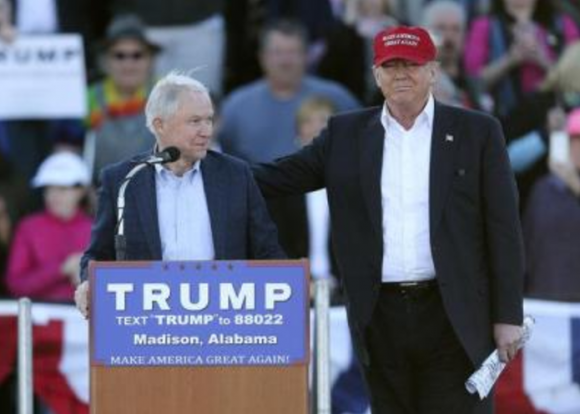 possesses cannabis. Federal law, of course,still classifies cannabis as a dangerous and illegal Schedule 1 drug.
possesses cannabis. Federal law, of course,still classifies cannabis as a dangerous and illegal Schedule 1 drug.
And if he wants to get rid of Cole, he just needs to sign on the dotted line. No approval is necessary.
Rep. Jared Polis (D-CO), talking to a Politico reporter last week, said the industry had better take action to make sure it isn’t.
“If we don’t take action and hold (Trump) accountable, then”in one fell swoop, the federal government could damage state economies, discourage entrepreneurship, (place) some of our innovators behind bars (and) erode states’ rights.”
Sen. Sessions in April: “Good people don’t smoke marijuana.”
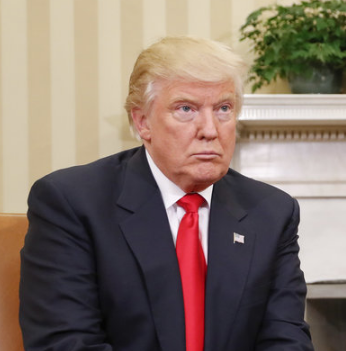 Until about a week ago, observers still held out hope that Trump’s cannabis-hating AG pick would be somehow neutralized.
Until about a week ago, observers still held out hope that Trump’s cannabis-hating AG pick would be somehow neutralized.
Then came the sucker punch: a leaked letter from Sessions’ office to a group of cannabis execs in California. It referred to a “new plan” for cannabis, and plainly implied cannabis companies who tried to rebel would face federal racketeering charges.
Speaking off the record for fear of “getting on Sessions’ radar before I need to be,” one Washington investor told me. The news around Sessions’ appointment is already slowing deal flow, at least at his fund, he added.
“Four days ago, an investment partner backed out. Just like that. The money is still there, we didn’t lose it, but thanks to Sessions, what’s the point of investing the $5 million we raised. I’m in shock.”
“Sessions is out there with a Jason mask on. The situation is dark. I don’t want to, but I am expecting the worst” a small grower in Washington said to me in the next interview I conducted. ” Fearing reprisal from the future AG’s office, that investor asked to remain unnamed in this article.
Sen. Sessions in 1986: The “Ku Klux Klan was OK till I found out they smoked pot.”
So who is the man born Jefferson Beauregard “Jeff” Sessions III?
Born in Selma, AL in 1946 to a small general store owner and his wife, he was raised in Hybart, AL, and has worked as a lawyer ever since college.
You can say a lot about him — there is no shortage of controversy surrounding his career, which you can read about here.
But he seems to have always been a bonafide and committed idealogue.
Notorious for his far right views on racial relations, a Mexican border wall and the auto bailout, which he opposed to the last, the Alabama Senator is unlikely to fundamentally overhaul a view on something he feels so passionately about.
To point, check out this video of an April 2016 Senate drug caucus on the topic of recreational cannabis in Colorado and elsewhere. In it, you can watch Session preaching the gospel on the evils of marijuana, and on the saintliness of the late Nancy Reagan, who will go down in history, for better or worse, for the War on Drugs she spearheaded.
In the video, you can see how genuinely passionate Sessions is about the issue. But he’s not faking it, that much is pretty much certain.
The main thing that seems to upset him about the recent state-by-state movement to legalize various forms of cannabis is the fact that it reverses that War on Drugs.
“It reverses 20 years of hostility to drugs, which really begun when Nancy Reagan’s started the ‘just say no’ program’ in the 1980s. That was a great, great accomplishment,” he said, adding:
“We moved this country from 50 percent of high school seniors using marijuana or other drugs to less than half that. Lives were saved. Young people’s futures were saved. And if we go back to that path, we are going to regret it.
“I can’t tell you how concerning it is for me, emotionally and personally, to see the possibility that we would reverse the progress we’ve made and just let it slip away from us,” he added. “Lives will be impacted, families will be broken up, children will be damaged because of the differences their parents have … because of marijuana. And people may be psychologically impacted for the rest of their lives … with marijuana.”
Sessions paused then for his dramatic finish:
“And if they go on to more serious drugs — which tends to happen, you can deny it if you want to, but it tends to happen — there will be even greater” consequences,” Sessions said. “You know, we had a prevention movement that was so positive. The creating of knowledge that this drug is dangerous, and … sending this message with clarity: That good people don’t smoke marijuana.”
For Sessions, cannabis prohibition and cannabis law enforcement is serious stuff. It isn’t about market forces, jobs, popularity or anything else.
To him, outlawing weed is about good and evil, right and wrong and a kind of do-what’s-right morality, pure and simple. And eschewing the demon weed is a moral choice he clearly feels obligated to impose on the reckless, misguided Americans, folks who just don’t know any better.
Will Trump save legal weed?
Acknowledging the sting in his “good people don’t use cannabis” comment, CFN Media chief Frank Lane told me he hoped Trump would emerge to save the day.
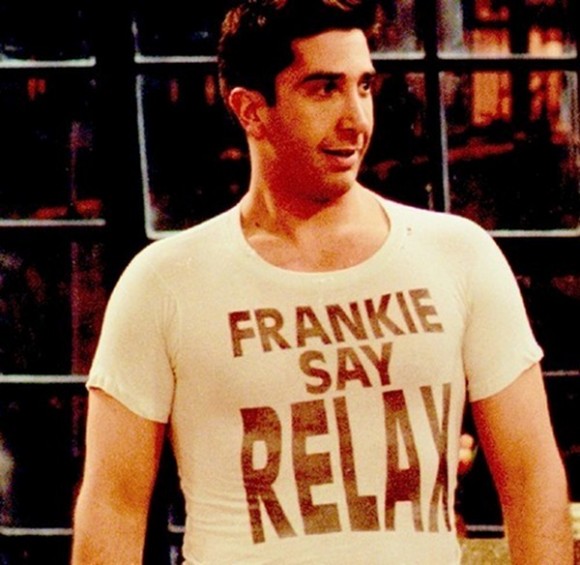
“Mr. Trump indicated that he supports medical marijuana, as well as states making their own decisions about whether to legalize marijuana, during a (Nevada) campaign stop.”
Yah. But is Trump really going to be the legal cannabis business’ savior?
In the opinion of several other analysts and execs I talked to, there are a lot of factors that indicate that Trump will likely not save the day here. Make that definitely not.
So, sure, maybe he did spread cannabis joy in that quasi promise, all the while trying to win over a key battleground state during a nasty election.
But he sure doesn’t think much about it. Never had. How do I know: Because: Twitter. And you know how many times he has uttered the word ‘Marijuana’ on Twitter?
Zero.
By comparison, we found 276 mentions of the word ‘China’ in the same pile of Trump tweets.
As Twitter is the closest thing we have to a mirror of Trump’s soul, it seems to be a pretty decent way to discover that cannabis isn’t something he ever thinks much about. Once in office, he probably won’t be focusing on it either. After Jan. 20, he will have Russia, China, Nigel Farage, immigration, tax breaks for the rich tand lots of other things to consume him. And of course, he’ll have his own pressing legal problems to deal with, too.
 There can only be so much bandwidth, you know.
There can only be so much bandwidth, you know.
Trump has “talked about changing federal policies at almost every possible level,” pointed out Mason Tvert of the Marijuana Policy Project in an NPR report last week. “But he never said he’s itching to change the way the government is handling state marijuana laws.”
Nope.
Probably he will just let Sessions do the job he appointed him to do — unhindered and un-micromanaged?
That eventuality right there is the one that seemed to haunt most of the execs I interviewed most.
But look. Trump awarded Sessions with the AG role, probably because of Sessions’ striking loyalty to the candidate throughout the campaign.
And note: Sessions has backed every one of Trump’s campaign stances, up to and including the Mexican border wall, a curtailing of women’s reproductive rights, you name it. He seems to have a positive view of Trump’s so-called Muslim Registry, too.
And he’s never flipped on such stances. That’s in contrast to Trump, who has flip flopped since the election on big stances like sending Hillary Clinton to jail (“just campaign talk”) ripping up the Affordable Care Act on Day One and dismantling NATO.
Cannabis dreaming
So far, it looks like there is no one on the cabinet who will intercept Session’s axe.
All but one of Trump’s appointees to his cabinet positions publicly opposes legal weed. The exception is Peter Thiel, the billionaire Paypal founder, who invested in a cannabis play. And he hasn’t mentioned it once that I can tell.
It’s a gang of idealogues.
“The ideologies held by those Trump is placing in power could supersede popular opinion and logical policy making,” Amanda Reiman of the Drug Policy Alliance told me via DM this morning.
In re-criminalizing cannabis by way of Sessions, she added, “Trump gives the public the middle finger, which he does on a regular basis anyway.”
Sessions, Trump and the rest won’t care.
On Election Day, voters in eight states cast ballots in favor of medical or all out recreational sales in their states. Two of those states, California and Florida, are huge, states where 61 and 70 percent of voters, respectively, said yes to legalization in some form.
Most of the states were blue states, too. Florida, which fell to Trump, is the exception. More Floridians voted for cannabis than voted for Donald Trump, according to the count, by a factor of two million.
For now, everybody can just get stoned in eight states and the District of Columbia. They’d better take big hits. Come next year, they will likely be back to expensive bags of rip-off ragweed or on the wagon. And so it goes.
But wait, what about all those cannabis jobs?
Here’s a four letter word that Trump and his supporters have held close like a rabbit’s foot for months now: JOBS.
The legal cannabis sector now employs about 150,000 Americans, according to Arcview data.
But, now, think again. Alternative energy has even more jobs, and a ton of potential. Trump’s not going there. He’s sucking up to the oil and gas industry, a dying dinosaur by any measure. When it’s in opposition to what Trump wants, even if we don’t understand why he wants it, jobs don’t matter.
Another is American public opinion. National opinion polls show record numbers of Americans now support legal weed, and the numbers keep rising.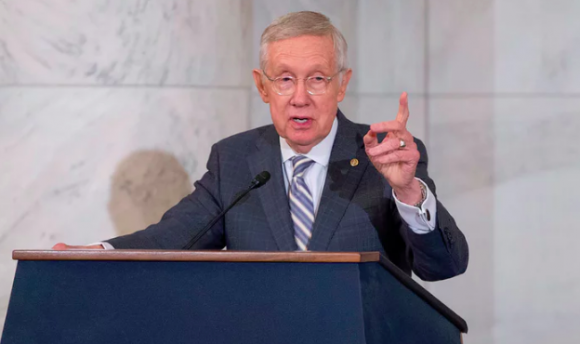
None of this will matter to Trump.
He is all about minority rule, as decision after decision shows. A minority of Americans voted him in, and that minority is the one holding minority opinions such as global warming being made up, Hillary Clinton being a secret child sex trader and Queen Elizabeth being, in actuality, an alien Reptilian.
In this new upside-down National Enquirer of a fake news world, minority rules. Get used to it. Sorry.
So what can the cannabis do to save its world from collapse?
Sadly, the answer is: very little.
 There is this one long shot, though. If someone or all the someones in cannabis can somehow manage to convince, if not Sessions, Trump, one of his children or his son-in-law, Jared Kushner, to delay or hold off letting that self-righteous Alabama senator kill recreational cannabis for the good of us all, that could work.
There is this one long shot, though. If someone or all the someones in cannabis can somehow manage to convince, if not Sessions, Trump, one of his children or his son-in-law, Jared Kushner, to delay or hold off letting that self-righteous Alabama senator kill recreational cannabis for the good of us all, that could work.
It could.
Set your alarm because the clock, she is ticking. You have 25 days.
Good luck. And chin up, too. Because, remember, There’s always Canada.
For aNewDomain, I’m Gina Smith.
PS: Check out these photos, videos and documents I included as background for you, below.
Always eat dessert first, we say.
Here’s a College Humor video one of the cannabis execs I interviewed sent me. Awfully relevant.
Here are the results of the 2016 Monitoring Marijuana Use study from researchers at the University of Michigan at Ann Arbor. Contrary to Sessions’ claims about the increase in teen cannabis use, this says usage is down.
Univ of Michigan Study on Teen Cannabis Use by Gina Smith on Scribd
Here’s a letter a cannabis industry group sent to Trump on Dec. 8. According to Fedex, they say, it has yet to arrive. Must be stalled in the Xray room. Or maybe the office guys are getting high in DC while they still can …
To Pres. Donald Trump From Cannabis by Gina Smith on Scribd
Besides Trump, who supports Sessions? Check this out.
Letter from ex DEA officials supporting Sen. Jeff Sessions for Attorney General by Gina Smith on Scribd
Here’s a letter that Department of Health and Human Services sent to Empire Cannabis Brand’s Pete O’Neil.It’s just a little strange. Read it and see why.
DHHS Letter to a Cannabis Exec re Cannabis Regulation by Gina Smith on Scribd
Want more evidence of Jeff Sessions’ hatred of legal cannabis. Watch his interview of outgoing AG Loretta Lynch’s at her confirmation hearing. Not priceless, but interesting.
This is report contains information that Trump, Sessions or other supporters in the administration will probably use to argue that legalizing weed for recreational use is a big state. Not that they will need to argue. In a pen stroke, the new attorney general can demolish the Cole memo that enables states to legislate on legal weed.
GAO Report on DOJ Monitoring of Legal Cannabis Enforcement Guidelines by Gina Smith on Scribd
Here’s the executive summary for The Arcview Group’s State of Legal Marijuana Markets, Fourth Edition.
Executive Summary: The State of Legal Markets, Fourth Edition 2016 by Gina Smith on Scribd
Ever seen the Cole Memorandum? Here’s the original policy, as put it into effect in Jun 2011. It can be turned off any time by the US Attorney general, but until it is, it makes it possible for states to legislate and legalize medical/recreational cannabis as they see fit. If the AG tears it up, however, he or she would have no trouble taking out legal cannabis anywhere and everywhere. All that would be necessary is renewed enforcement of federal law, under which Cannabis remains classified as a dangerous, Schedule I drug.
Read it for yourself below.
Cole Memorandum 2011 by Gina Smith on Scribd

